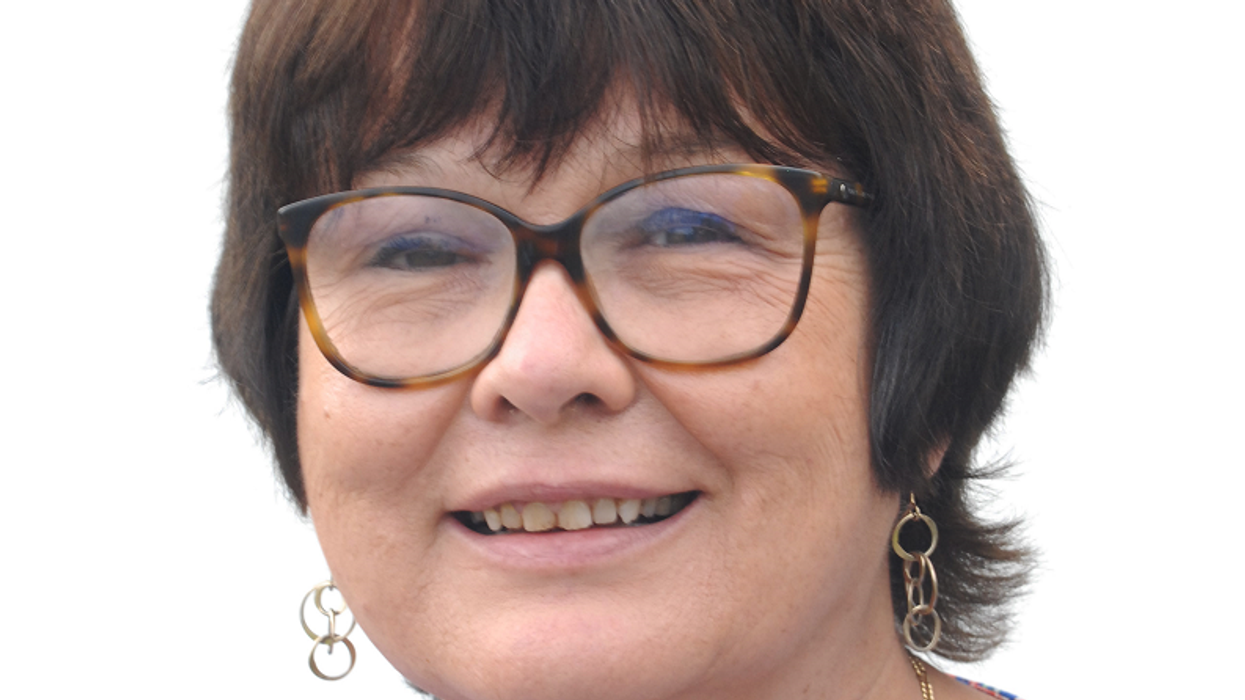Pharmacy 2030 describes a future in which pharmacy teams will work together, using their expertise to make the best use of medicines.
Claire Anderson, President of the Royal Pharmaceutical Society (RPS), recently visited pharmacy teams across Shetland to witness their innovative practices and the implementation of the RPS’s vision for the future of pharmacy, "Pharmacy 2030," within this remote island community.
During the two-day visit in June, Claire was accompanied by Anthony McDavitt, Director of Pharmacy for NHS Shetland and Interim Depute Chief Officer of the Shetland Community Health and Social Care Partnership.
They visited two community pharmacies: Laings Pharmacy in Lerwick and Brae Pharmacy. Both have independent prescribing pharmacists, providing a crucial first point of contact healthcare service for their communities, the RPS noted, emphasising that independent prescribing is a “cornerstone of our vision.”
Claire also met with the hospital pharmacy team at Gilbert Bain Hospital and presented the RPS vision for hospital pharmacy, which includes promoting pharmacists to patient-facing roles and advancing clinical practice, including caseload management.
The team at Gilbert Bain Hospital told Claire that they have already done some focused work based on the vision.
On the second day, Claire visited pharmacists working in primary care at one of the Scottish Government's Primary Care Improvement Plan pharmacotherapy demonstrator sites.
Alongside visitors from Healthcare Improvement Scotland’s Primary Care Phased Investment Programme, Claire presented the RPS vision for general practice pharmacy.
The vision mainly focuses on improving skill-mix across pharmacy teams to better utilise pharmacists' knowledge, skills, and experience in supporting patients.
Speaking about the visit, Claire said:
“Thank you so much to pharmacy teams across Shetland for welcoming me, and for being so generous with your time to demonstrate the fantastic work which every pharmacist in Shetland is involved in on behalf of the island community.
“I am so proud to witness the implementation of our vision for the future of pharmacy, Pharmacy 2030, and learn about the innovative approaches taking place to implement this in a remote and rural setting.”
Claire mentioned that, due to unforeseen circumstances, a member of the RPS Scotland team was unable to join the visit.
She is looking forward to the next visit to further monitor the progress, aiming to ensure that patients receive the best possible care from their pharmacy teams.
Pharmacy 2030, a professional vision for the whole of pharmacy in Scotland, was jointly published in February 2022 by Pharmacy’s professional leadership body, Royal Pharmaceutical Society, and National Pharmacy Technician Group Scotland.
It describes a future in which pharmacy teams will work together, using their expertise to make the best use of medicines.
The Pharmacy 2030 document reads: “By 2030, the traditional boundaries between pharmacy sectors will be broken down. Pharmacy teams will work together, both within pharmacy and with the wider multidisciplinary team, to deliver seamless care for patients.
“Pharmacy teams will take a person-centred approach and care will be provided holistically rather than by clinical condition.
“They will ensure high quality, safe, effective, cost-effective and sustainable prescribing in all settings.
“In addition, they will drive high standards of medicines governance, and ensure every aspect of prescribing and dispensing processes are effective and efficient.”
The RPS Scotland noted that the change will be driven by “digital and technology developments” enabling whole-team working and clear pathways of professional development across all pharmacy sectors.
Meanwhile, RPS England has called on the Labour government to address the priorities for patients and pharmacies.
The organisation is actively engaging with new Ministers and MPs to highlight key issues from their manifesto for the upcoming Parliament. These issues include addressing the growing challenge of medicines shortages, fair funding to maintain patient access to a resilient community pharmacy network, student access to the learning support fund, and investment in hospital pharmacy and aseptic pharmacy services.
They have urged the new government to consider the recommendations of the Health Select Committee Inquiry into pharmacy closely.
“Pharmacy teams and the whole of the workforce are under continued pressure and it is crucial that a re-energised NHS Long-Term Workforce Plan is backed by much-needed investment, alongside steps to improve retention.
“I look forward to working with the Government on how we can support pharmacists and pharmacy teams to help build an NHS fit for the future,” said Tase Oputu, Chair of the RPS in England.













